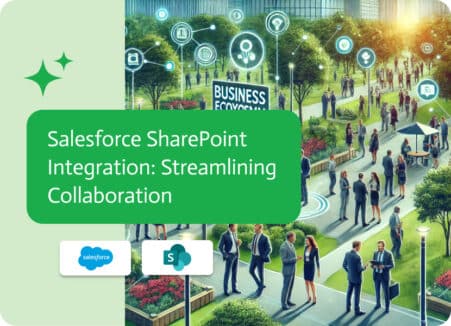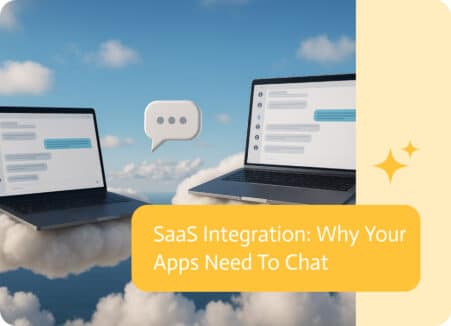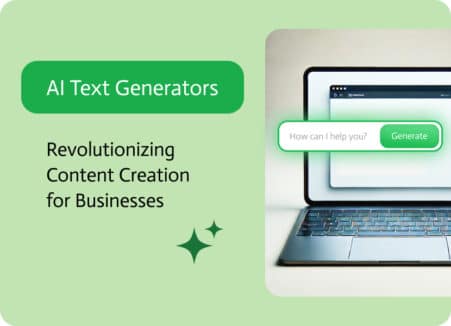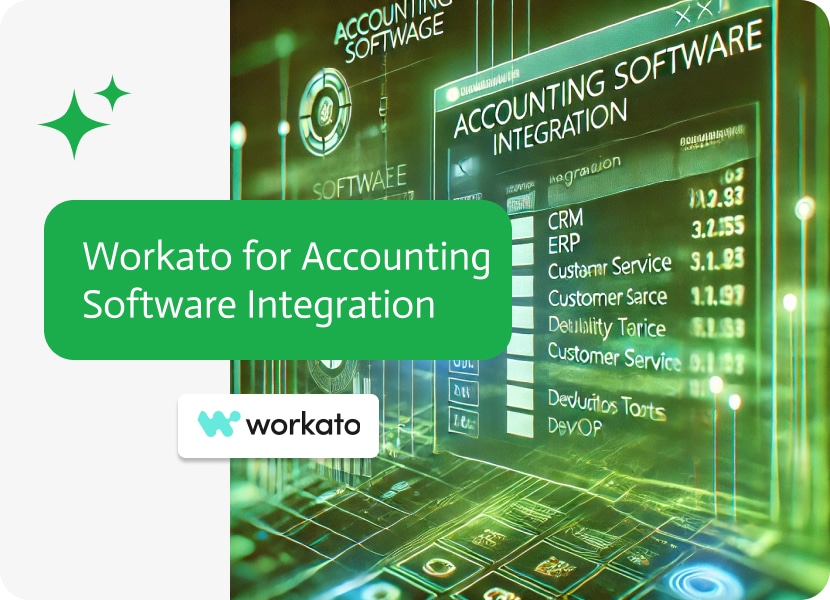
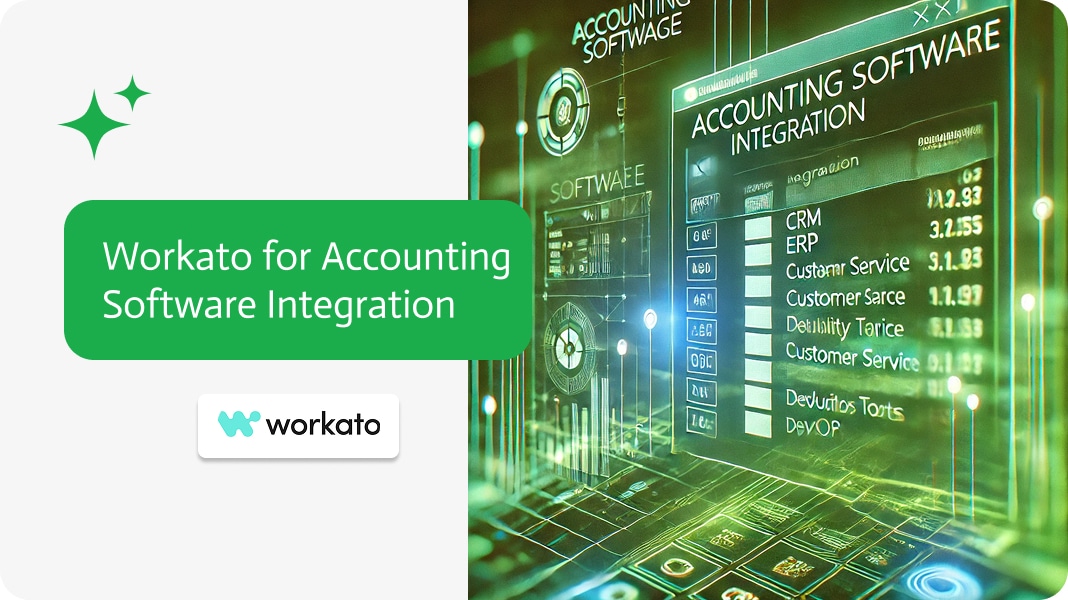
Workato for Accounting Software Integration
What is Workato and How Can It Enhance Accounting Software Integration?
Workato is a versatile integration platform as a service (iPaaS) that facilitates the seamless connection and automation of workflows across various financial applications and systems. By linking both cloud-based and on-premises applications, Workato enables smooth data exchange and process automation, significantly reducing manual tasks and errors. The platform’s intuitive interface allows users to create “recipes” that automate specific tasks by setting triggers and actions between integrated apps. With Workato’s capabilities in accounting software integration, businesses can achieve greater efficiency, enhanced data consistency, and improved financial management, making Workato accounting software integration an essential tool for optimizing financial operations.
The Importance of Accounting Software Integration
Accounting software integration is crucial for creating a cohesive and efficient financial management system within an organization. By integrating various business applications and data sources, accounting software integration ensures that financial data is centralized, accurate, and up-to-date. This integration improves communication between departments, automates routine financial tasks, and enhances overall operational efficiency. The result is a streamlined financial process that supports better decision-making and strategic planning.
Leading Use Cases for Workato Accounting Software Integration
1. Salesforce Accounting Software Integration
Use Case: Integrating Salesforce with accounting software enhances financial and customer relationship management. This integration ensures that all sales and financial data are synchronized across platforms, providing a unified view of customer transactions and financial status.
Benefits:
- Unified financial and customer data
- Automated data syncing
- Improved workflow efficiency
- Enhanced team collaboration
2. Workday Accounting Software Integration
Use Case: Syncing Workday with accounting software streamlines financial and human resources processes. This integration ensures that payroll, expenses, and financial data are accurately captured and reflected across systems, enhancing overall financial management.
Benefits:
- Unified HR and financial data
- Automated payroll and expense reporting
- Improved financial oversight
- Enhanced operational efficiency
3. NetSuite and Expensify Integration
Use Case: Integrating NetSuite with Expensify automates expense reporting and approval workflows. This ensures that all expenses are recorded and reflected in NetSuite, aiding in better expense management and compliance.
Benefits:
- Unified expense management
- Automated expense reporting
- Improved financial oversight
- Enhanced team coordination
4. Sage Intacct and Slack Integration
Use Case: Connecting Slack with Sage Intacct automates communication workflows related to financial updates. This integration streamlines the process of sending, receiving, and managing financial messages, improving communication efficiency and reducing the likelihood of missing important updates.
Benefits:
- Automated communication workflows
- Centralized messaging
- Improved message management
- Enhanced team productivity
5. Zoho Books and Stripe Integration
Use Case: Syncing Zoho Books with Stripe streamlines payment processing and financial reporting. This integration ensures that payment data is accurately captured and reflected in Zoho Books, simplifying financial tracking and reconciliation.
Benefits:
- Accurate payment tracking
- Automated financial reporting
- Improved financial management
- Enhanced operational oversight
6. FreshBooks and Google Sheets Integration
Use Case: Integrating FreshBooks with Google Sheets ensures seamless financial data sharing and processing. This integration allows teams to access, share, and update financial data in real-time, improving data management and collaborative efforts.
Benefits:
- Centralized data management
- Automated data processing
- Enhanced collaboration
- Improved data management
Key Benefits of Using Workato for Accounting Software Integration
- Automation of Financial Processes: Workato automates repetitive financial tasks, reducing manual effort and minimizing errors, which allows finance teams to focus on strategic initiatives that drive business growth.
- Enhanced Financial Control and Oversight: Integrating various financial tools and platforms consolidates operations, reduces silos, and promotes collaboration across departments, leading to higher productivity and efficiency.
- Advanced Financial Analytics and Reporting: Unified financial data from multiple sources allows for advanced analytics and reporting, providing valuable insights into business performance and financial trends to inform strategic growth.
- Improved Compliance and Risk Management: Automation and integration ensure that financial processes comply with regulations and standards, reducing the risk of errors and enhancing overall financial governance.
Challenges of Workato for Accounting Software Integration
While Workato is a robust tool for integrating accounting software applications, it presents several challenges that users should consider. Here are some common issues associated with using Workato for accounting software integration:
- Complexity of Financial Workflows: Integrating accounting software with other business applications can be complex due to the specific financial workflows and regulatory requirements involved. Workato’s extensive features, while powerful, can add to this complexity. Users without advanced technical skills may find it challenging to set up and manage these integrations effectively, requiring significant IT involvement.
- Data Accuracy and Reconciliation Issues: Accurate data transfer is crucial in accounting to ensure proper financial reporting and compliance. Users have reported issues with Workato’s data synchronization, leading to discrepancies that require manual reconciliation. This can be time-consuming and prone to errors, affecting the reliability of financial data and requiring IT support to resolve.
- Compatibility with Legacy Systems: Many accounting departments still rely on legacy systems that may not be fully compatible with modern integration platforms like Workato. Integrating these older systems can be difficult, often requiring custom development and additional IT resources to bridge compatibility gaps, which can be costly and time-consuming.
- Customization Limitations: While Workato offers a variety of pre-built connectors and recipes, there may be limitations in customizing workflows specific to accounting needs. Businesses with unique or highly specialized financial processes might find these limitations restrictive, necessitating additional manual work or custom development.
- Compliance and Security: Accounting software handles sensitive financial information that must comply with various regulatory standards (e.g., GAAP, IFRS). Ensuring Workato meets all necessary security and compliance requirements can be challenging. Users must implement stringent access controls and monitoring to protect financial data, often requiring IT expertise.
- Learning Curve for Business Users: Despite being marketed as a no-code platform, Workato still requires a significant investment in training and learning. Accounting teams, typically composed of business users rather than IT professionals, may find it difficult to fully utilize all features without extensive training, which can delay implementation and reduce the platform’s effectiveness.
- High Costs: Workato’s pricing structure can be a significant obstacle, particularly for smaller businesses or startups. The costs escalate rapidly with the addition of more integrations, users, and features. This high price point can make Workato less accessible for organizations with limited budgets, forcing them to seek alternative solutions or reduce the scope of their integrations.
- Lack of AI Capabilities: One of the significant drawbacks of Workato is the lack of advanced AI capabilities. Intelligent automation and AI-driven features are increasingly important for enhancing the efficiency and effectiveness of accounting software integration. The absence of robust AI functionality in Workato means that many complex tasks still require manual intervention, reducing overall productivity.
Understanding these potential challenges can help businesses make informed decisions about using Workato for their accounting software integration needs and whether exploring alternative solutions might be more beneficial.
Exploring Workato Competitors for Accounting Software Integration
While Workato excels in accounting software integration, some Workato competitors offer unique strengths. For instance, Noca AI leverages advanced AI and natural language processing to create intelligent and efficient integrations, enhancing user experience and operational flow. MuleSoft stands out with its vast array of app integrations, catering to complex enterprise needs. Boomi, on the other hand, is praised for its sophisticated data manipulation and seamless connectivity. These alternatives provide a range of specialized features, enabling businesses to find the perfect fit for their unique integration requirements.
Q&A Section
Q1: How does automation in finance benefit businesses?
- Answer: Automation in finance using iPaaS solutions like Workato enhances financial processes by automating repetitive tasks such as invoicing, reporting, and reconciliations. This reduces manual errors and allows finance teams to focus on strategic activities. The key benefits include reduced manual effort, increased accuracy, enhanced productivity, and improved strategic focus.
Q2: What are the benefits of finance process automation?
- Answer: Finance process automation with Workato automates end-to-end financial workflows, such as accounts payable, accounts receivable, and financial close processes. This integration streamlines operations and ensures timely financial reporting. The main benefits are end-to-end process automation, increased operational efficiency, timely and accurate reporting, and improved financial control.
Q3: How does Workday Finance Integration enhance financial management?
- Answer: Integrating Workday Finance with other business systems centralizes financial data and improves financial planning and analysis. This integration ensures seamless data flow, enhancing budget management, forecasting, and financial reporting. The benefits include centralized financial planning, automated data synchronization, improved financial forecasting, and enhanced decision-making.
